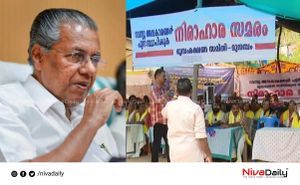Primary school pupils should be encouraged to lick ice lollies during science lessons to establish engaging real-life experiences, according to recommendations from various scientific organizations. This idea is part of a broader push for introducing what are referred to as "essential experiences" within the primary science curriculum.
The call for reform stems from efforts by groups like the Royal Society of Chemistry, the Institute of Physics, and the Royal Society of Biology, which aim to bridge gaps in science education. Their report emphasizes the need for hands-on experiences to address inequalities faced by students studying science, technology, engineering, and mathematics (STEM).
Notable recommendations include allowing children not only to enjoy ice lollies but also to plant vegetables, or even knead dough. Such sensory experiences are considered pivotal for helping children connect with fundamental scientific concepts as they progress through school.
A research-backed assertion suggests children lacking these real-world interactions may find themselves at significant disadvantages. The report highlights how such experiences form the concrete basis necessary for children to understand more abstract concepts introduced later.
Last month, the UK government launched its curriculum and assessment review, led by education expert Professor Becky Francis. The Department for Education has indicated the importance of incorporating feedback from teachers, parents, and leaders, with updated curriculum recommendations expected by 2025.
Aylin Ozkan, from the Royal Society of Chemistry, explained how these recommendations highlight chemistry education. “By the age of 11, all children should grasp how temperature works and how heating and cooling can change things—what’s more effective than ice lollies for illustrating these concepts?”
Ozkan believes these engaging experiences should naturally form part of children’s education. She noted they promote personal learning, amplifying children's scientific confidence regardless of their backgrounds.
Charles Tracy, from the Institute of Physics, shared insights on utilizing sound and light. He stressed the importance of allowing children to explore sound through activities like creating noise to teach concepts of pitch and volume, making science lessons more inclusive.
Inclusive curriculum design is being advocated to support teachers. Recommendations call for integrating global and societal contexts within science education, breaking down barriers to make genuine scientific experiences accessible to all students.
Lauren McLeod from the Royal Society of Biology emphasized connecting children with nature. Her proposition involves involving students with life cycles and sustainability, encouraging engagements like visiting garden centers or growing vegetables within the classroom.
Advocates stress this initiative is more than just about ice lollies; it's about providing every child enriching experiences. By doing so, schools can empower teachers to incorporate science seamlessly within daily life.
Teachers appreciate initiatives promoting practical learning. Matt Jones, co-headteacher of three primary schools, stated, “Using relatable everyday items, like melting ice lollies, enhances pupils’ comprehension and retention of scientific concepts.”
While the enthusiasm for hands-on learning is widely supported, some educators urge caution against completely overhauling the current curriculum. Sarah Hannafin of the NAHT warned, “We don’t necessarily need to start from scratch; we should refine and build on what already works effectively.”
The existing curriculum, particularly the focus on English and math at the expense of science, has caused concern. According to Ofsted, many children sometimes would go extended periods without any science instruction, leading to calls for balance.
The education community acknowledges the challenge faced by schools when trying to schedule science lessons amid crowded timetables. The government’s upcoming curriculum review aims to give science its due time and importance alongside other pressing subjects.
The Department for Education reinforced its commitment to ensuring equal access to high-quality learning experiences. They plan to collaborate with educational leaders and experts to create comprehensive recommendations catering to young learners’ needs.
Encouraging ice lolly licking as part of the curriculum may sound whimsical, yet it symbolizes the need for more engaging, practical science education.
Experts believe the goal is simple: making science relatable and enjoyable for children, laying down the knowledge they need for future academic challenges. Clarity and accessibility will help spark interest and passion within STEM subjects, developing the next generation of scientists and innovators.
Looking forward, educators are eager to see productive discussions around these proposals take form. With clear direction and thoughtful implementation, there’s potential for long-lasting improvements to re-engage primary science education across the spectrum.



